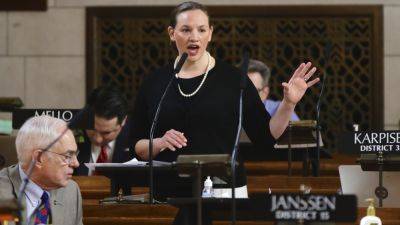DMK has an Emergency counter for BJP: ‘Why not revert education to Concurrent List?
Written by Sanjana Suchdev
Tamil Nadu Chief Minister M K Stalin asked Monday whether the BJP-led Union government that has been attacking the Congress over excesses during the Emergency would reverse one of the decisions taken in the period, and move education back to the State List from the Concurrent List.
His statement followed the Centre’s announcement that June 25, the day the Emergency was declared in 1975, would henceforth be celebrated as ‘Samvidhaan Hatya Diwas (Constitution Murder Day)’.
The DMK government led by Stalin and the Centre have been at cross-purposes over the issue of medical college entrance being centralised under NEET, with Tamil Nadu demanding that the state be allowed to conduct its own admission process. The controversy over alleged irregularities in the NEET-UG entrance exam this year has added momentum to the demand.
Hitting back, BJP Tamil Nadu president K Annamalai asked why the DMK had been silent when it was a part of the UPA government at the Centre for 10 years. “In 2006, the DMK promised to bring education back to the State List. Why did the party, which was all-powerful in the Congress-led government at the Centre, not fulfill this promise?” Annamalai asked.
It is the Seventh Schedule of the Constitution that lays out the division of powers between the Union and states on different subjects, slotting them under the Union, State or Concurrent List.
While the Union List contains subjects on which the Centre is the sole legislative authority, states deal with subjects under the State List, while the Concurrent List has subjects on which both can legislate. In case of a conflict between a state and the Centre on a subject under the Concurrent List, the Central law prevails.
Shifting subjects







